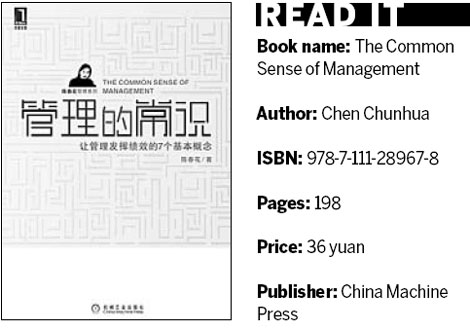Book review

Staying ahead in marketing
Now that almost every organization claims to be customer-oriented, the strategy is no longer sufficient. We are witnessing the rise of Marketing 3.0 or "the human-centric era". Instead of people being treated as consumers they are treated as human beings who are active, anxious, and creative.
In this new book, Marketing 3.0: From Products to Customers to the Human Spirit, world-leading marketing guru Philip Kotler and his co-authors explain that customers are no longer isolated but are connected. They are no longer unaware but are informed. They are no longer passive but are active. They want to play a role in value creation. They want to communicate with others about their satisfaction or dissatisfaction with product and service brands.
The authors argue that over the years marketing has mutated through three stages. Many of today's marketers still practice marketing 1.0, some practice marketing 2.0 and a few are moving into marketing 3.0. The greatest opportunities will come to marketers practicing 3.0. Marketing 1.0, or "the product-centric era", was that stage where companies appealed to the mind of customers by providing rational arguments why the customer should buy their product. Marketing 2.0, "the customer-centric era", was the new stage where companies tried to connect emotionally with the customers so that their preference would be based on a mind and heart connection with the company. Marketing 3.0 is the latest stage at which companies are seeking to connect with the customers' spirit in this age in which they want the company to assume more social responsibility for the issues that concern all of us, including the environment, poverty, disease and drugs.
Marketing 3.0 addresses the importance of recognizing the human condition in marketing any product or service. Companies such as S.C. Johnson and Timberland are creating products, services and company cultures that lead, inspire and reflect the values of their customers. In an age of highly aware customers, companies must demonstrate their relevance to customers at the level of basic values.

Common sense in management
As an old saying goes, "When lost, the best route to choose is to return to your starting point." The book The Common Sense of Management, written by Chen Chunhua, gets back to the most fundamental but also the most critical matters of business management.
From Chen's perspective, there are seven basic questions of management: What is management? What is organization? What is structure? What is leadership? What is decision? What is plan? And what is motivation? The thinking behind these questions constitutes this book.
Professor Chen emphasizes the importance of performance management. She believes any kind of management should be responsible for performance. Without performance, the management is meaningless. Management in the end is represented by the growing of subordinate staff, so giving care and support to subordinate staff should be a priority of management.
She also advances two viewpoints. One is that management should combine organizational targets and personal targets together. In the current market-oriented society, everyone is "economic man", driven by benefits. Therefore, we should advocate the idea of thinking subjectively for oneself and at the same time thinking objectively for others. Only if subordinate staff totally agree on and really like the organizational target from their own hearts will they regard the organization targets as their personal targets.
The other viewpoint is that the process of making a plan is to set boundary conditions to decrease variable quantities, since a manager would be more efficient if he or she faced fewer variable quantities. In a world of change, we cannot stop change. What we can do is to adapt ourselves to new changes, find out the market rules, and then make plans according to them. This is an important issue that managers, especially senior managers, cannot evade.
As an enlightening educator, a role she often plays, Chen says instead of talking about doctrines, it is better to refer to the most elementary common sense. There is no right or wrong in management. All we have to do is to face the problems and deal with them.
(China Daily 05/24/2010 page17)














